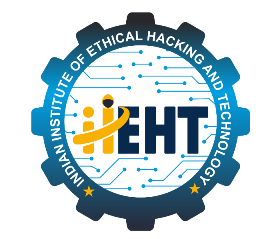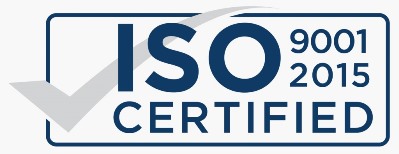What Is Ethical Hacking?
Date: Jan 18, 2023

Cyber Terrorism
Introduction
Computer hacking carried out with authorization is known as ethical hacking. In order to obtain unauthorized access and carry out destructive actions, ethical hackers seek for defects in computer systems. These actions include stealing sensitive data and destroying system files. To uncover vulnerabilities and weak endpoints so that they may be addressed, renowned software companies frequently employ hackers to break into their servers and systems. Almost every software corporation uses this procedure to take security precautions against reputable hackers who have harmful intentions. Such individuals are known as ethical hackers, and the act of such intrusion into a system with permission and without any malevolent purpose is known as ethical hacking. One must keep in mind that hacking any system without authorization is prohibited and can have serious repercussions if you are detected. People who are found guilty of unethical hacking or any other cybercrime may face years in prison. Therefore, the best technique to identify weaknesses in a computer system is through ethical hacking. The IT sector is still expanding quickly. The sector is growing exponentially, which suggests that there is concern about the likelihood of rising cybercrime in the foreseeable future. As a result, the technical industry needs a substantial workforce of trained ethical hacking personnel to defend it from cybercrime.
Types of Ethical Hacking
• Web Application hacking: Web hacking is the process of using the visual chrome browser, interfering with the URI, or collaborating with HTTP features not stored in the URI to exploit software over HTTP.
• Computer Hacking: System hacking is a technique used by hacktivists to gain access to machines on a network. By using techniques like packet sniffing, privilege escalation, password cracking, and malicious software development, IT security experts can protect themselves from these risks.
• Web Server Hacking: Web content is produced instantly by an application as you can see, the aforementioned activities are crucial to maintaining the integrity of a digital way of life and workplace.
• Social Engineering: Social engineering is the practice of influencing large populations to reveal private information. Criminals utilize legacy because it is typically simpler to target your natural difficulty trusting than it is to figure out how to imitate your gadget.
• Hacking cordless devices: A hacker can easily enter the system from either a nearby location since wireless networks communicate data through radio waves. Network trafficking is a common tactics used by these assailants to locate the Identifier and compromise a wireless network.
Types of Hackers
• White Hat Hackers: These are the proper individuals who assist us on the dark web. White hat hackers, commonly referred to as ethical hackers, are cybersecurity specialists who work with the government and companies by carrying out penetration tests and finding security holes. Black hat hackers and other cybercriminals are a threat, thus ethical hackers employ a range of defence mechanisms to stay safe. They break into our system in order to help you uncover security holes and remove malware and viruses.
• Black Hat Hackers: The majority of today's cybercriminals are black hat hackers. A black hat hacker's main objective is typically money. These online fraudsters check each machine in financial and commercial systems for security problems. By taking advantage of whatever vulnerabilities they discover, they can get into your network and obtain your personal, commercial, and financial information.
• Grey Hat Hackers: White hat hackers and black hat hackers both use grey hats. Grey hat hackers may not pursue personal gain with their expertise, but they are nonetheless capable of having both good and harmful motives. For example, a hacker who breaks into a company and discovers a weakness might disclose it online or notify the company. However, when hackers utilize their hacking prowess for monetary benefit, they switch from white to black hat.
• Suicide Hacker: A suicide hacker is someone who operates with the intention of taking down important infrastructure and corporations. These types of hackers, who frequently have vengeance on their minds, don't fear the repercussions of their acts. Hacktivists are another name for these individuals.
Importance of Ethical Hacking
The ethical hacker will notify the issue and offer advice on how to resolve it when he discovers a vulnerability. To safeguard and defend its customers' data, the corporation hires an ethical hacker. A system may not always be under attack by malevolent attackers, despite what ethical hackers test for. It may indicate that the hacker is getting ready and taking precautions to secure their data.
• Evaluation of password strength
• Optimizing privacy controls, access levels, and data management by exploit testing
• Validity checks for authentication protocols
• Penetration tests after every software update or upgrade, as well as after every time a new security patch is added.
• Protection from denial-of-service attacks
• Providing that programmes are equipped with security capabilities to protect user and company databases
As you can see, the aforementioned actions are essential to preserving a digital way of life and workplace. If you don't use ethical hackers to combat the threat posed by unethical hackers, you're setting yourself up for failure. Take a hypothetical circumstance that draws extensively on real-world events in the past. If you manage an e-commerce or social media website, the information about your customer accounts must be maintained in databases for your web application. These facts and information can include things like births, addresses, likenesses, privileged messages, secret multimedia content, payment information, hashed passwords, etc.
Phases of Ethical Hacking
• Reconnaissance: Information collecting is the process of reconnaissance. During this phase, the hacker acquires important information about the targeted system. Services, operating systems, packet hops to the system, IP configuration, and other things are among them. Many programmes, including Nmap, Hping, Google Dorks, and others, are used for reconnaissance.
• Scanning: Network access is regularly used to carry out hacking. No matter if it is being used at home or in an office, the majority of our equipment is network-connected. The most common configuration for this network is WLAN or Wi-Fi. Offices are equipped with broadband connections as well to ensure maximum efficiency. As a hacker, you can take advantage of this and concentrate on accessing the network of the target host. During this process, the network topology and vulnerable ports are exposed.
• Gaining access: The two methods mentioned above complete the data collection phase. Now that you are aware of it, you must begin your hack. In order to access the target system in this step, security precautions are neglected, or passwords are broken.
• Clearing tracks: After completing the attack or hack, it's crucial to wipe off any evidence of your intrusion. In order to prevent the attack from being linked to you or discovered in the first place, you must remove any backdoors, executables, or logs in this phase
• Maintaining access: The target system must allow you to use it once your initial session is completed once you have acquired access. This is accomplished through a backdoor. Backdoors are exploits or hacks that are left in the target system to allow access later. The target system might update its security patch or reset its security settings without a backdoor, requiring you to perform or build the hack once more.
Scope of Ethical Hacking
Ethical hacking is frequently used in penetration testing to find security system flaws, vulnerabilities, and risks so that countermeasures can be taken. Risk assessment, auditing, and fraud detection all depend heavily on ethical hacking. Due to the numerous harmful attackers who pose a threat to businesses and their networks, there is a significant demand for ethical hackers, making it one of the vocations that is currently rising quickly. Many ethical hackers are employed by sectors like banking and information technology to safeguard their infrastructure and data. Additionally, due to a greater risk of weaknesses, this profile will be in higher demand than other profiles in the days to come.
How can Someone learn to hack ethically?
If you're thinking of becoming an ethical hacker. It might turn out to be one of the most creative and interesting career pathways. The weekly changes in the hacking environment are partly to blame for this. You must constantly research and stay current with the newest infections and exploits out there. This effort is not in vain because the more competent and effective you are, the larger the demand for your services will be, and you will also be paid in accordance with that demand.
We can see from the aforementioned job description that in order to work in the domains of ethical hacking and cybersecurity, one must be a "Certified Ethical Hacker." This certification is the EC-CEH Council's, not just any certification (Certified Ethical Hacker).
What are the following ethical hacking barriers?
• Limited scope: The scope of an attack cannot be expanded by ethical hackers in order to be successful. however, it is reasonable to talk to the organization about potential outside-the-scope attacks.
• Resource limitations: Malicious hackers do not experience the time restraints that ethical hackers frequently do. Budget and computing power are two more restrictions on ethical hackers.
• Restricted techniques: Some businesses advise specialists to avoid any sort of testing scenarios that could cause servers to crash, such DoS attacks.



